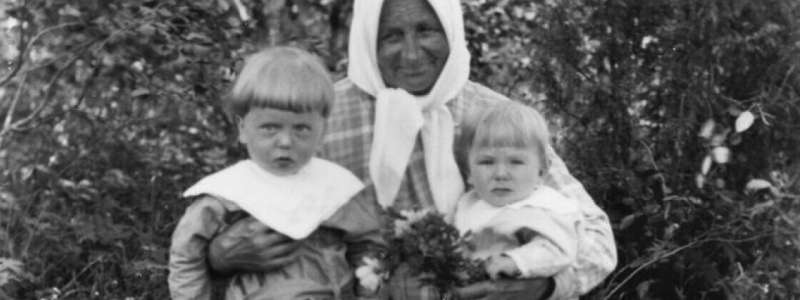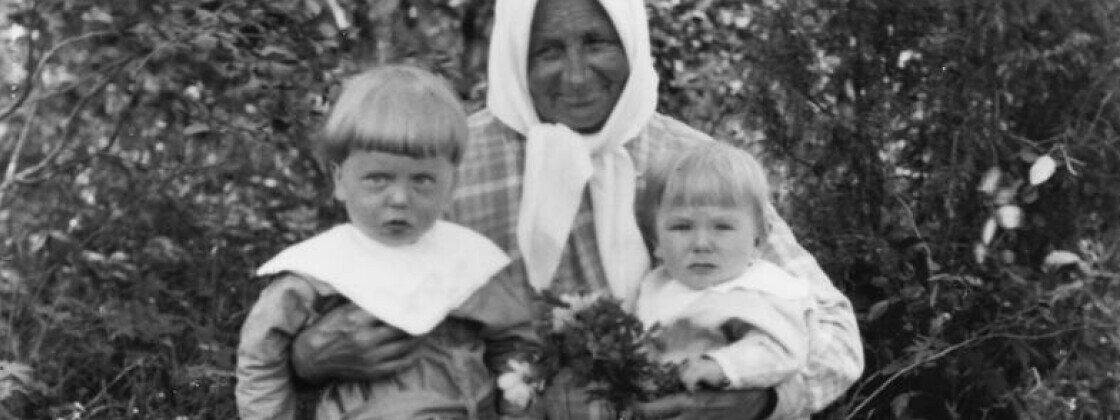
Researchers from the University of Turku and the Max Planck Institute for Infection Biology investigated the role of grandmothers in preventing childhood mortality from infectious diseases in 18th and 19th century Finland. According to the study, grandmothers decreased all-cause and cause-specific mortality of children.
The research article, “Grandmother presence improved grandchild survival against childhood infections but not vaccination coverage in historical Finns,” has been published in the journal Proceedings of the Royal Society B.
In historical and in several contemporary societies, children with living grandmothers are more likely to survive into adulthood, but the mechanism behind this effect remains poorly known.
As childhood infections have been a leading cause of death in children under the age of 5 years, the researchers aimed to investigate whether the effect of grandmothers on childhood survival was related to providing knowledge in childcare, particularly during critical times such as epidemics. One way for grandmothers to do so could be by encouraging vaccine uptake or earlier vaccination against childhood infections, as has been observed in some contemporary populations.
Researchers first studied the effects of grandmothers on children’s cause-specific mortality, based on the historical records of five causes of death: smallpox, measles, pulmonary infections, diarrheal deaths, and accidents. The large multigenerational dataset of pre-industrial Finnish families included 9,705 individuals from 12 parishes across Finland, where the survival of individuals until the of age 15 years was monitored from 1761 to 1900.
In the second part of the study, the researchers determined whether increased survival against the childhood infection smallpox was mediated by vaccination. To this end, they used 1,594 vaccination records from two rural parishes and matched them to their individual family histories.
The results show that grandmothers decreased all-cause mortality, an effect which was mediated through improved survival from smallpox, pulmonary and diarrheal infections, but not from measles or accidents. However, the researchers found no evidence of increased or earlier vaccination between children with or without grandmothers.
“Our results show that the grandmother’s presence protected against some childhood infections, which could indicate that in historical Finnish society, the assistance provided by grandmothers in childcare was likely an important factor in ensuring the survival of children,” says the lead author of the study, Doctoral Researcher Susanna Ukonaho from the Department of Biology at the University of Turku, Finland.
Grandmothers in contemporary societies
Although grandmother care provided health benefits in many historical societies, these benefits may no longer be relevant in contemporary societies. The progress in health care during the 20th century especially in high-income countries likely decreased the role of grandmothers. However, some studies indicate that grandmothers improve childhood survival in several contemporary middle- and low-income countries.
“The type of benefits that grandmothers provide may vary depending on cultural contexts and individual circumstances. Even though in many societies grandmothers are no longer essential for childhood survival, their efforts in childcare remain valuable for the well-being of the whole family,” says Ukonaho.
The study was conducted in collaboration with the Nordemics consortium, an interdisciplinary consortium dedicated to understanding how factors such as urbanization, increased trade and travel, large-scale migration, vaccines and other public health interventions, climate change, and ecological degradation influence the dynamics of infectious disease epidemics in historical Nordic societies.
More information:
Susanna Ukonaho et al, Grandmother presence improved grandchild survival against childhood infections but not vaccination coverage in historical Finns, Proceedings of the Royal Society B: Biological Sciences (2023). DOI: 10.1098/rspb.2023.0690
Journal information:
Proceedings of the Royal Society B
Source: Read Full Article
